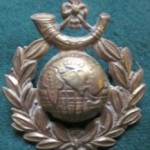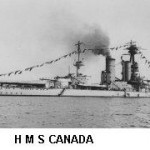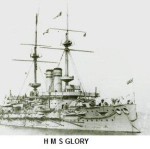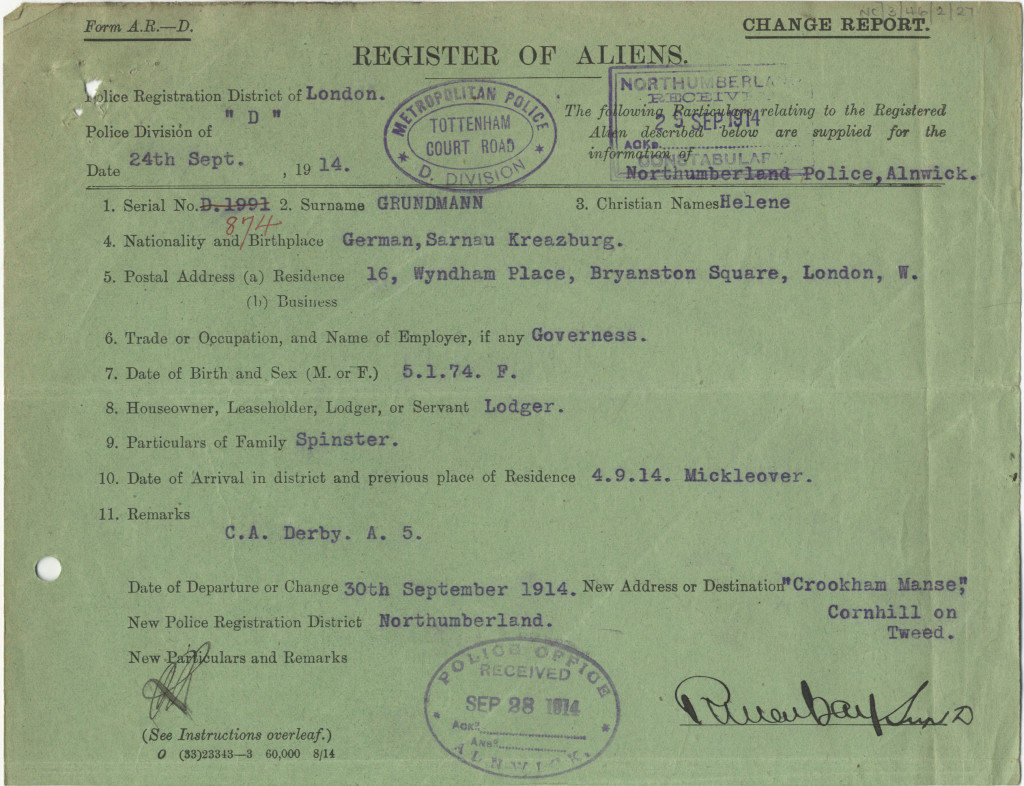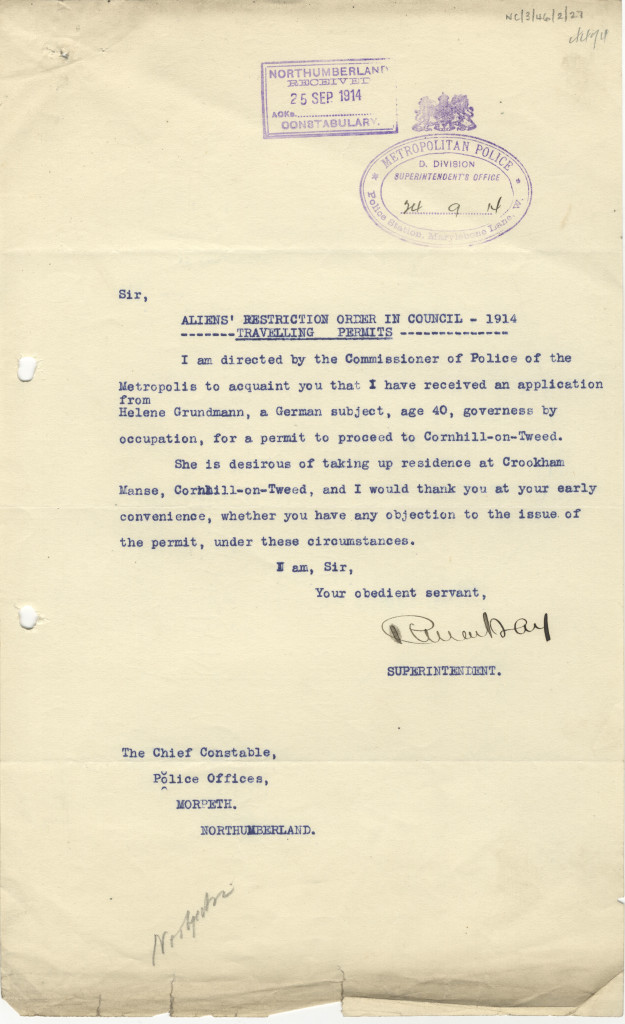
A few weeks ago we re-tweeted and posted a BBC story on our Twitter and FaceBook feeds the story of Cpl. Arthur Cecil Rawson from Whittlesey who was the first soldier killed by ‘Friendly Fire’ in the First World World. There was a small list at the end of this story which included the names of 5 other servicemen one of which was Private Pugmire of Blyth.
Further research has located an account of Private Pugmire’s last days running up to his death and the coroners report which was printed in the ‘Evening Chronicle’ Newspaper on Friday 28 August 1914.
SOLDIER SHOT AT – BLYTH
Death from Self-inflicted Wound
Coroner H. T. Rutherford held an inquest at Blyth this morning on the body of William Pugmire, 24, a member of the Northumberland Fusiliers, stationed at Blyth.
Jane Pugmire, of 1, Plummer Street, Newcastle, deceased’s wife said her husband was an engine-fitter and turner. She last saw him on Sunday night at Blyth, and he was then very happy. He asked witness to come back again on Sunday first, as he would have some time off. She had no reason to think that he would take his life. He was quite healthy.
Edward Ratcliff Bowdon, Lieutenant in the Northumberland Fusiliers, said deceased was at Blyth with the Company. They were located at the Skating Rink. Deceased was arrested for a serious military offence, and brought before the commanding officer on August 6. They went to Blyth on the 7th. On the 6th they were stationed at the Central Station, Newcastle, where the deceased was placed on sentry duty. He was drunk in charge of one of the bridges. He was taken before the commanding officer, and was given the choice of being brought before a court martial or being reduced from sergeant to private. Deceased chose the latter. On Tuesday night last there was another offence against him, and he was brought before witness.The second offence was not so serious as the first. Witness remanded deceased to the commanding officer.
Corporal Joseph Longstaff Porter said he was on the relief guard at Blyth at 9.45 on Wednesday morning. Deceased was in the cell. Shortly afterwards the deceased asked witnessed to take him to the latrine. A posted letter was put into deceased hand. This he put into his pocket without reading it. On returning witness put him into the cell. He asked witness a few minutes later to let him have some exercise. Witness let him out and marched up and down the corridor twice with him. Then they stood at the door of the cell. Deceased then said he wanted a book out of the guard-room, and witness let him go into the guard-room. He sat on a kit and commenced turning pages over. There was one man in the room writing a letter, with his back to Pugmire. At that time witness was standing at the door of the guard-room watching deceased. Someone asked witness for a match, and while his back was turned for a moment he heard a shot go off. Witness thought the report came from the main hall, and ran there. Everybody was rushing towards the guard-room, and he afterwards went there and found Pugmire had been found shot. The guns belonged to the relief guard, but they were not loaded. Someone had gone to the latrine and had hung his equipment up in the guard-room. It contained 80 cartridges. Several unloaded rifles were hung up a few yards from deceased.
Harry Rutherford said he was writing a letter in the guard-room when the last witness brought the deceased in. Deceased spoke to him, and about half a minute later witness heard the report of a gun, and found deceased lying on the floor. A gun was lying beside him. Deceased was lying face downwards with the rifle at his right side and the muzzle towards his head. There were about six rifles hanging on the pegs and this rifle seemed to be nearest to him. The man’s equipment that was hanging up was one cartridge short.
Dr. Newstead said there was a punctured bullet-wound in the lower part of the front of the abdomen and a similar wound in the back part of him. The bullet had gone right through. Pugmire died on Thursday from shock following the injury.
The jury found that the deceased died from shock consequent upon wounds self-inflicted with a rifle, and that there was no evidence to show the state of his mind.
We would like to express our sincere appreciation to Maggie Neary for transcribing this article for the Northumberland At War Project.
We would also like to thank Dimitrios Corcodilos for supplying the image used in this post, along with a number of other digital images of military headstones found within the Blyth Links Cemetery, Cowpen Cemetery and Cowpen (Saint Cuthbert’s) Roman Catholic Burial Ground.

